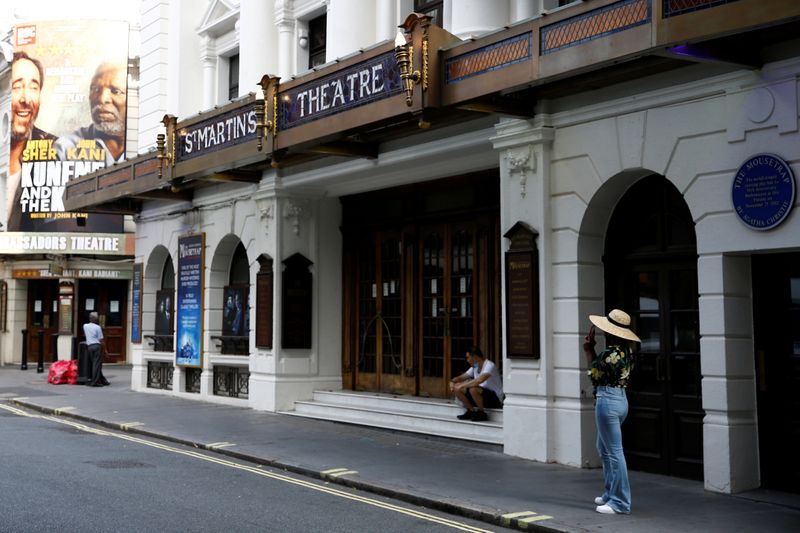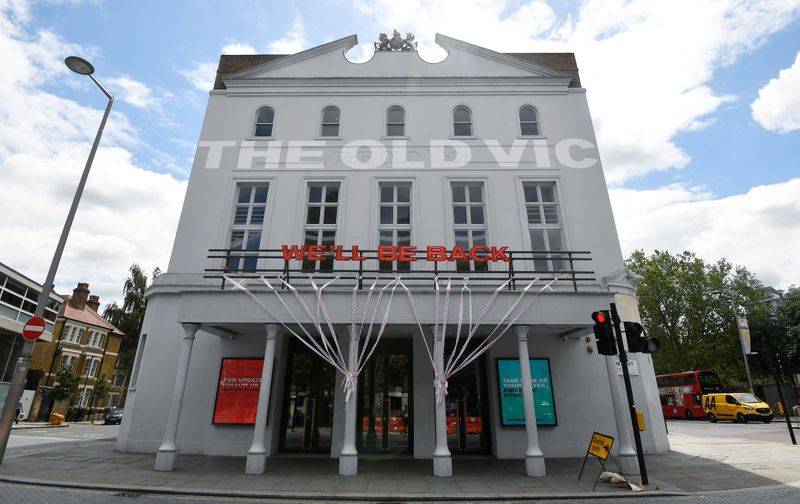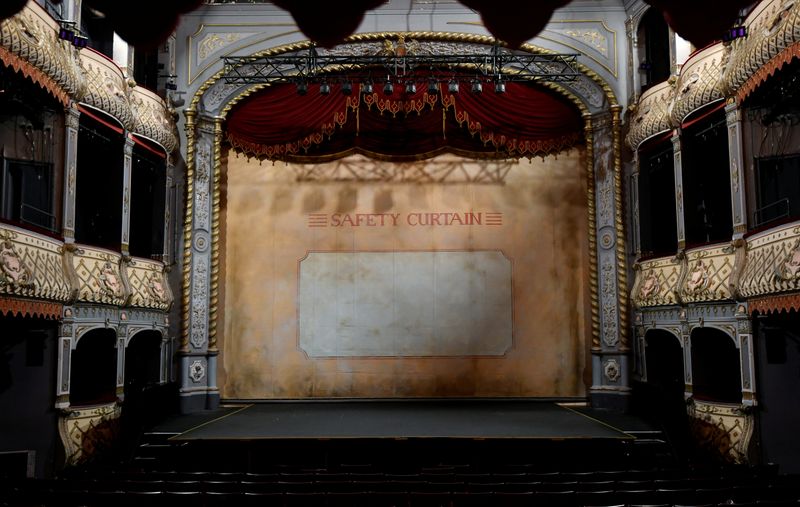LONDON (Reuters) – British theatres and live music venues say the show will only go on if the government provides a financial backstop, as the COVID-19 pandemic means they can no longer get commercial insurance.
While venues for indoor live performances are not yet open in all of Britain, theatres and concert halls in England have in theory been open to socially-distanced audiences since mid-August.
But only a handful have opened, citing insurance as one of the many barriers, as underwriters have been excluding COVID-19 from the cover they provide.
That means a theatre has no protection against cancellation or legal action from anyone in the audience or cast who falls ill or from a lockdown due to COVID-19.
Some small theatres are carrying on regardless and hoping for the best, but for tours, festivals and big names, it’s a deal breaker and has hit live performance across the globe, including on Broadway.
“You’re not going to get a sponsor, full-house ticket sales, finance, TV licensing or big stars unless they are guaranteed,” said James Davies, a director at insurance broker EC3.
A survey by the Society of London Theatres in May showed only 12% of organisations thought they would get the insurance they needed to reopen.
“The one thing no one can get insurance for at the moment is COVID,” said Phil Bowdery, chair of the Concert Promoters’ Association, one of several trade bodies pushing for government help.
“We’ll take care of all the normal insurance – we are asking for the government to be a partner.”
PLAN TO HELP FILM INDUSTRY
Organisers of live performances in Britain are seeking a scheme like the 500 million pound ($661 million) deal announced by the British government for the film and TV industry in July.
The scheme will insure productions for 70% of their losses if they have to abandon production due to the pandemic, up to a maximum of five million pounds.
“We are working to get the scheme (for the film and TV industry) open for applications as soon as possible and we have committed to cover eligible losses from the date the scheme was announced,” the Department for Digital, Culture, Media and Sport said in an emailed statement on Monday.
The entertainment industry is one of the hardest hit by months of lockdown and ongoing social distancing requirements.
In the first 12 weeks of lockdown, which started in late March, more than 15,000 theatrical performances were cancelled with a loss of more than 303 million pounds in box office revenue, according to a parliamentary committee report in July.
“Government must address the urgent need for the UK’s cultural industries to be covered by adequate insurance,” the report said.
Other countries such as France and Australia have also introduced backstops for the film industry, but sources say there are no similar schemes for live events.
“We are … hearing from our insurers that no tour insurance is available which will cover for COVID-19,” said a source involved in orchestra tours.
Venues and shows will struggle to survive with social distancing in place because they need at least 70% capacity to break even, and a government-backed insurance scheme would help them get going, said Tim Thornhill, sales director, entertainment and sport, at insurance broker Tysers.
Both Tysers and EC3 are working on proposals, but the prospects of affordable COVID-19 insurance being offered by the industry may be remote. The British government film fund has no insurance partnership as insurers were reluctant to provide cover, sources said.
“It is difficult for underwriters to justify to capital providers why they should risk more throwing good money after bad,” said one insurer.
Allianz <ALVG.DE>, Hiscox <HSX.L> and Chubb <CB.BN> are among other major providers of entertainment liability insurance.
Allianz was no longer providing this insurance for cancellation or illness due to COVID-19, a spokesman confirmed.
Hiscox declined to comment. Chubb did not respond.
(Editing by David Evans and Gareth Jones)
























